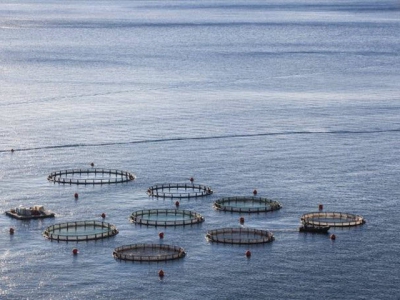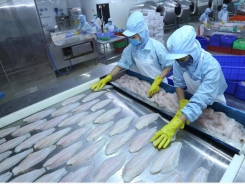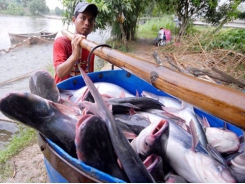Spanish researchers seek to find value in aquaculture waste

New study aims to identify ways to extract value from wastes generated by aquaculture.
Among the challenges holding back the further expansion of aquaculture are a lack of knowledge and infrastructure for handling the growing volume of waste materials generated by the sector, according to technology center AZTI.
The organization is leading a project to identify solutions to these issues and transfer know-how for the valorization of aquaculture byproducts. The Valacui project offers AZTI the opportunity to work in close collaboration with the Spanish Technological Platform for Fisheries and Aquaculture (PTEPA), examining possible synergies with producers of similar materials in other sectors, including fisheries.
According to AZTI, the aquaculture sector is hampered by an absence of appropriate infrastructure and technical issues in the proper handling of water products that comply with environmental and other regulations and yet are also economically sustainable.
Among the goals of the year-long project is the publication of a handbook setting out a range of solutions for generating value from what are currently low-value products generated in the aquaculture value chain. With this information, it is hoped that stakeholders in aquaculture enterprises will gain access to information to help them raise their income in a sustainable way. Using straightforward methodology, they will be able to compare different options in terms of technical feasibility, environmental impact and economic returns.
An important part of the Valacui project includes the dissemination of the results at a series of workshops.
Support from industry
The initiative is supported by the Foundation for Biodiversity, Spanish Ministry of Agriculture and Fisheries, Food and Environment through the Pleamar program, and co-funded by the Spanish Federation of Municipalities and Provinces (FEMP).
According to the organization’s website, AZTI is a technology center developing sustainable products, services and business initiatives aimed at promoting industrial development of the food and marine fisheries sectors, while preserving and recovering natural resources. Founded in 1981, and with a particular focus on the development of the Basque region, the organization carries out applied research and works closely with its clients to improve their competitiveness, and contribute to their financial and social development.
In 2014, Spain stood at No. 24 in the world in terms of aquaculture production, and second in Europe, according to a report published in 2016 by the Fisheries and Aquaculture Department of the United Nations’ Food and Agriculture Organization, FAO. In that year, Spanish aquaculture generated 282,000 metric tons (mt) of aquaculture products. This figure comprised 222,500 mt of mollusks, 44,000 mt from marine and coastal aquaculture, and 15,500 mt from inland farming. The country was one of largest global exporters of squid and cuttlefish.
A recently published survey of global feed production has identified several issues challenging the aquaculture sector, particularly in Asia. However, organizations have identified the potential for development in this sector in countries as geographically spread as Nigeria, the Seychelles, and India.
Có thể bạn quan tâm
Phần mềm

Phối trộn thức ăn chăn nuôi

Pha dung dịch thủy canh

Định mức cho tôm ăn

Phối trộn phân bón NPK

Xác định tỷ lệ tôm sống

Chuyển đổi đơn vị phân bón

Xác định công suất sục khí

Chuyển đổi đơn vị tôm

Tính diện tích nhà kính

Tính thể tích ao hồ



 It’s complicated – reviewing the use of essential…
It’s complicated – reviewing the use of essential…  Big Data dividend?
Big Data dividend?